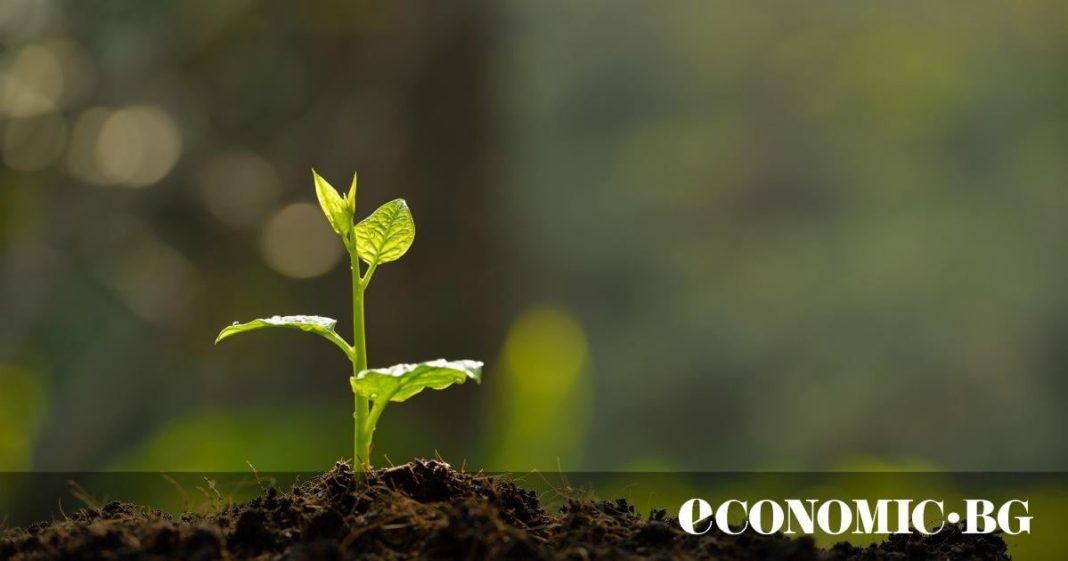As the world intensifies its search for solutions to climate change, Bulgaria has made a significant breakthrough with its first carbon credit registry – the Balkan Carbon Credit Registry (BCCR). The platform is a key step towards integrating the country into voluntary global carbon markets and provides a unique opportunity for local companies and projects to actively participate in the fight against climate change.
The BRCC operates as an independent platform that enables the registration, verification, and tracking of carbon credits. The registry ensures that every ton of carbon emissions reduced or removed is documented with a unique serial number, eliminating the risk of double counting of emissions – a serious problem that undermines market confidence.
This platform operates under strict international standards of transparency and publicity, with information on registered projects and issued credits available to the public. Each project undergoes a thorough process of independent assessment and verification by certified auditors to ensure the real environmental value of the credits.
What are carbon credit registries and why are they necessary?
Carbon credit registries are an important tool for managing and controlling voluntary carbon markets. They are digital systems that track the entire life cycle of carbon credits – from issuance and sale to withdrawal from the market – ensuring that each credit is unique and used only once.
The need for these registries arises from the challenges of transparency and accountability in voluntary carbon markets. Without clear and independent documentation and control, there is a risk of double counting, which can seriously compromise the effectiveness and credibility of emissions compensation mechanisms.
In addition, registries help facilitate the integration of local projects into global markets and encourage sustainable practices by providing reliable and verifiable information.
By providing clear and accessible public records of emissions and offsets, carbon credit registries build the necessary trust among all market participants, including companies, investors, and regulators, encouraging wider participation and more effective achievement of climate goals.
The role of the Balkan Carbon Credit Registry (BCCR) as an independent platform
As the first Bulgarian registry, the BRCC fulfills a critical function in the carbon market ecosystem. It serves as an independent and reliable platform for issuing, tracking, and managing carbon credits, providing the necessary infrastructure for registering and publicly reporting reduced emissions.
The main strength of the BRCC is its independence and strict transparency – factors that are key to building trust and integrity among market participants. The platform enables continuous monitoring and verification of the authenticity and origin of credits, ensuring that all participants have accurate and up-to-date information.
This key role of the BRC helps local projects connect more easily with international investors and markets, which in turn stimulates the wider development of sustainable and environmentally responsible practices in the region. Thanks to its transparency and efficiency, the BRIC is already establishing itself as a key tool for supporting and promoting green development and innovation in Bulgaria.
Requirements for publicity, transparency, and prevention of double counting
One of the most important tasks of the BRCC is to ensure high standards of publicity and transparency. The registry makes sure that all info related to carbon credits – including project details, credit serial numbers, and end users – is publicly available and verifiable.
To avoid double counting of credits, the BRC applies strict international standards for monitoring and verification. Each credit has a unique serial number, which ensures that the same credit cannot be used more than once. These measures are key to maintaining trust in voluntary markets and protecting participants from potential fraud or errors.
In this way, the BRC not only ensures reliability and transparency, but also encourages active and responsible participation by companies and investors in the fight against climate change.
How does the platform work and what projects have already been registered?
The BRCC platform operates through several clearly defined steps: project registration, independent validation and verification, and issuance of carbon credits. Each project wishing to participate must demonstrate a real and measurable contribution to reducing or eliminating carbon emissions.
The first Bulgarian carbon credits generated from sustainable agriculture and soil organic carbon restoration projects are already registered on the platform.
To date, the BRCC has issued over 15,000 carbon credits, with successful projects including those in sustainable agriculture and the introduction of new technologies to reduce emissions in industrial and agricultural processes.
With the expansion of the platform, the number and diversity of registered projects is expected to increase as more companies and investors discover new opportunities to participate in the carbon market and contribute to the sustainable development of Bulgaria and the region.
The importance of the BRCC is not only economic but also strategic – through its active participation in voluntary carbon markets, Bulgaria is strengthening its position as a reliable partner in international efforts towards climate neutrality and sustainable development.
The registry provides opportunities for local businesses as well as security and confidence for international investors seeking effective and transparent projects to offset their emissions.
In this way, the BRC opens a new chapter for Bulgaria, positioning the country not only as a participant but also as a leader in the region in terms of environmental innovation and climate policies.
Translated with DeepL.
Източник: Economic.bg


